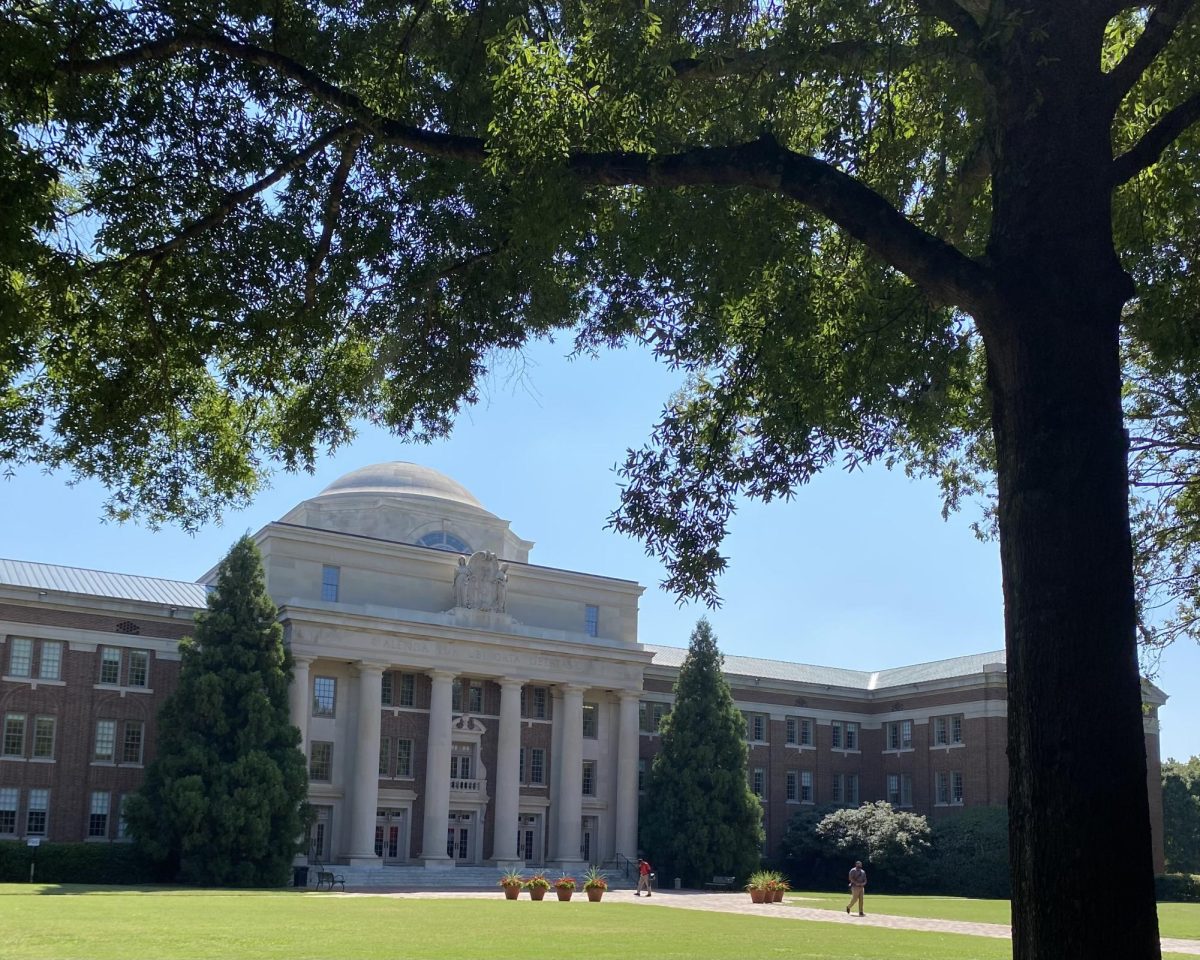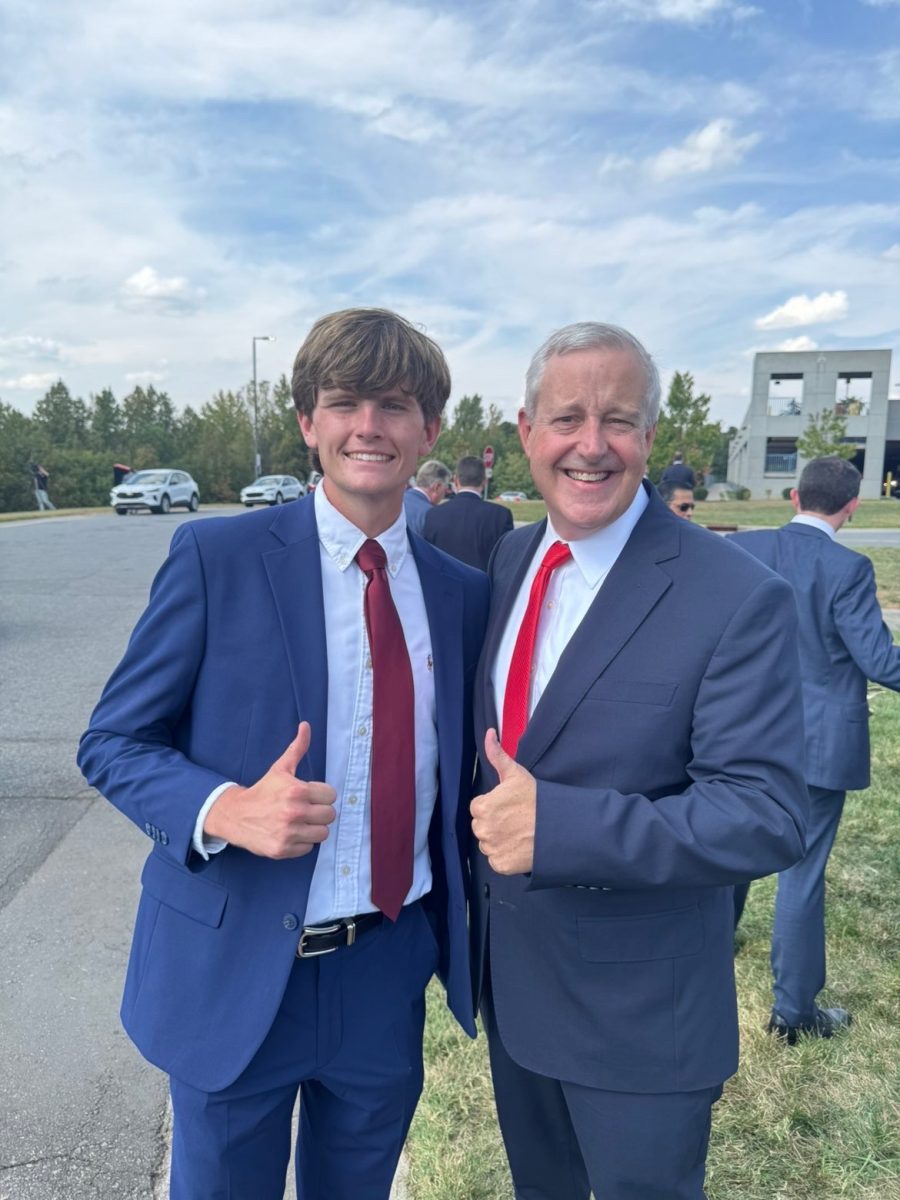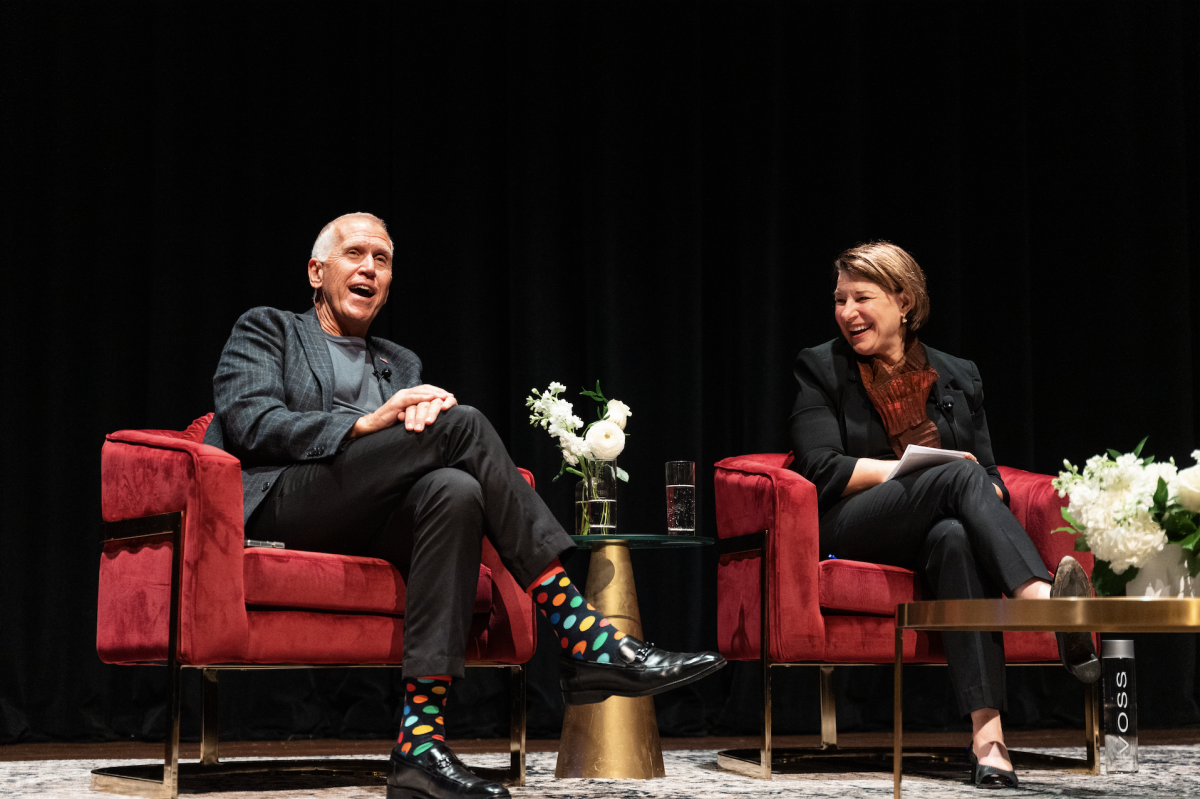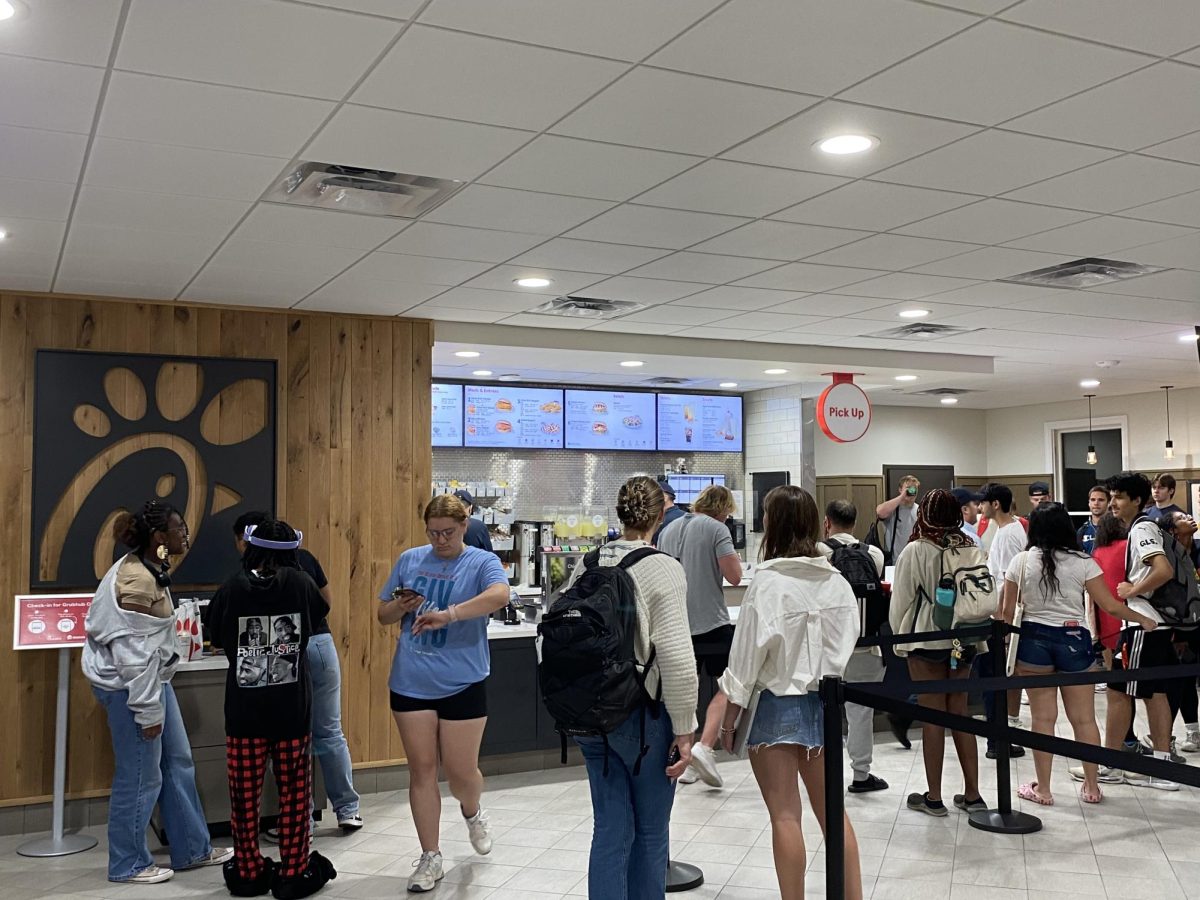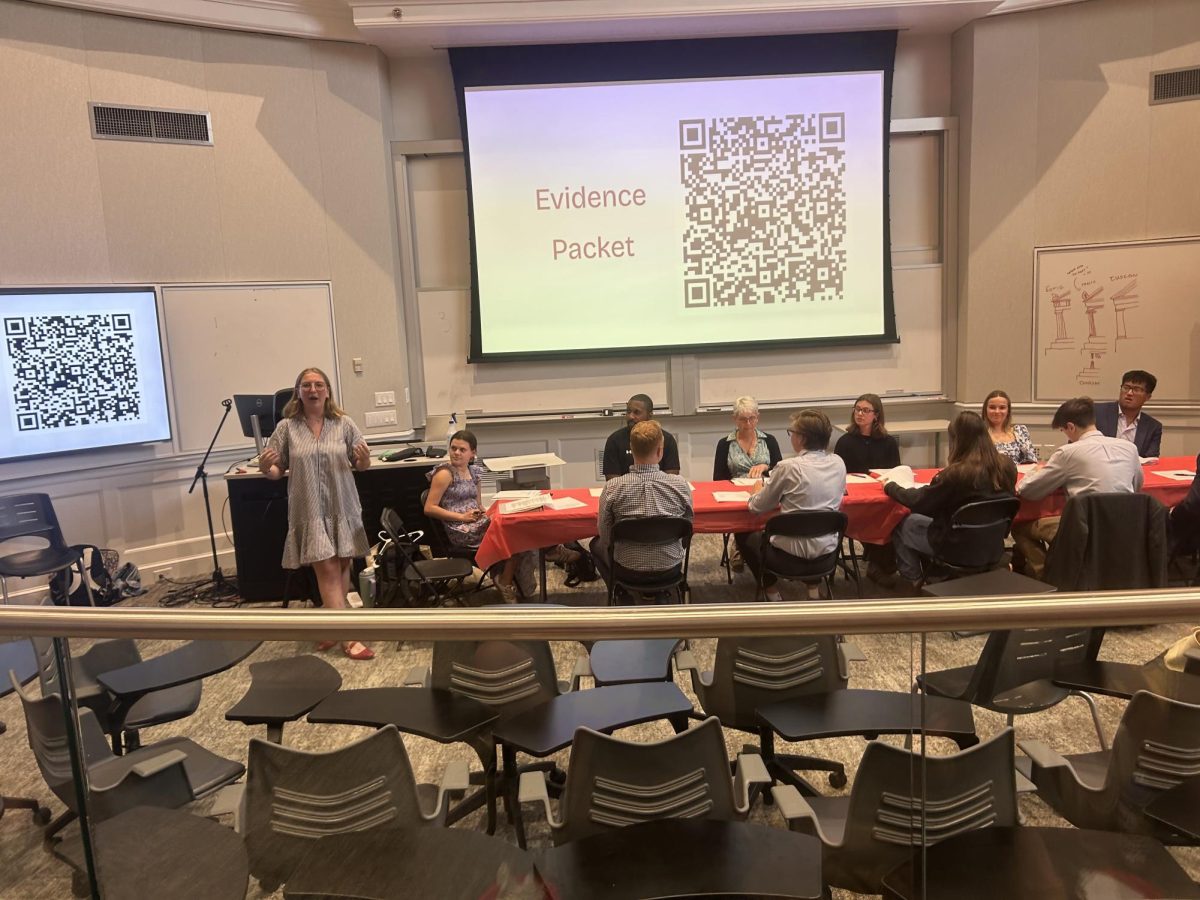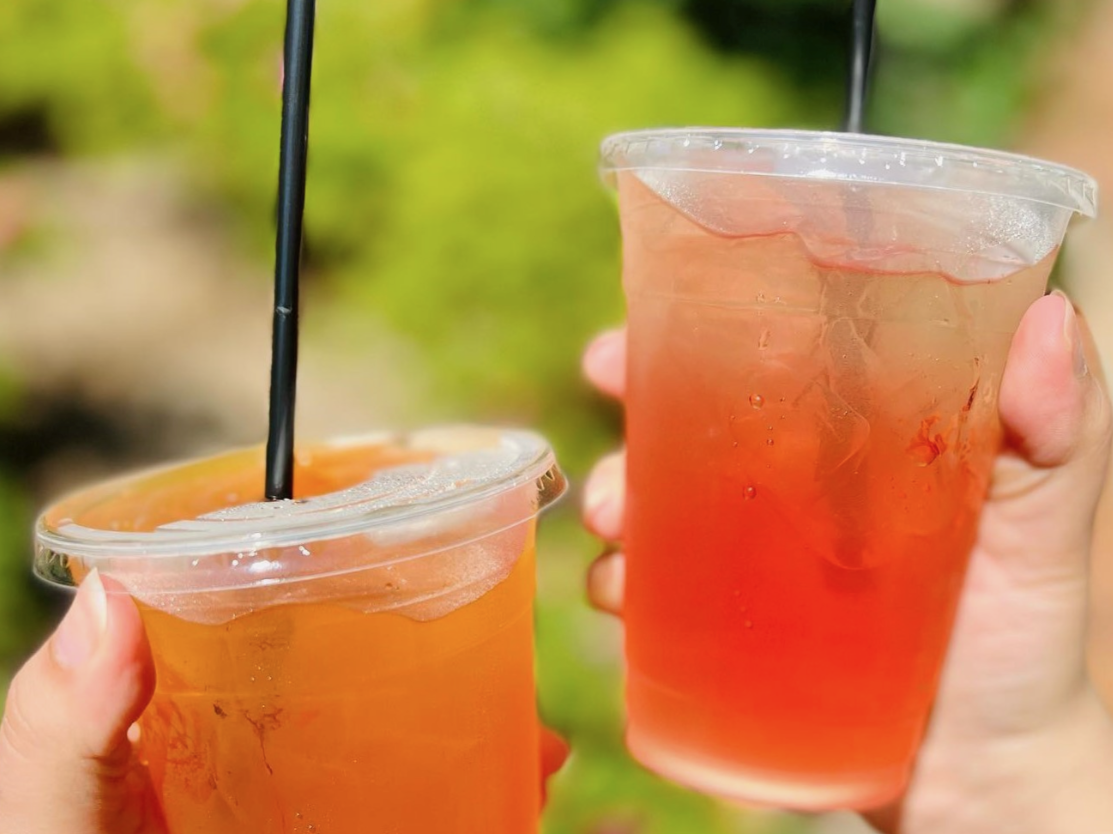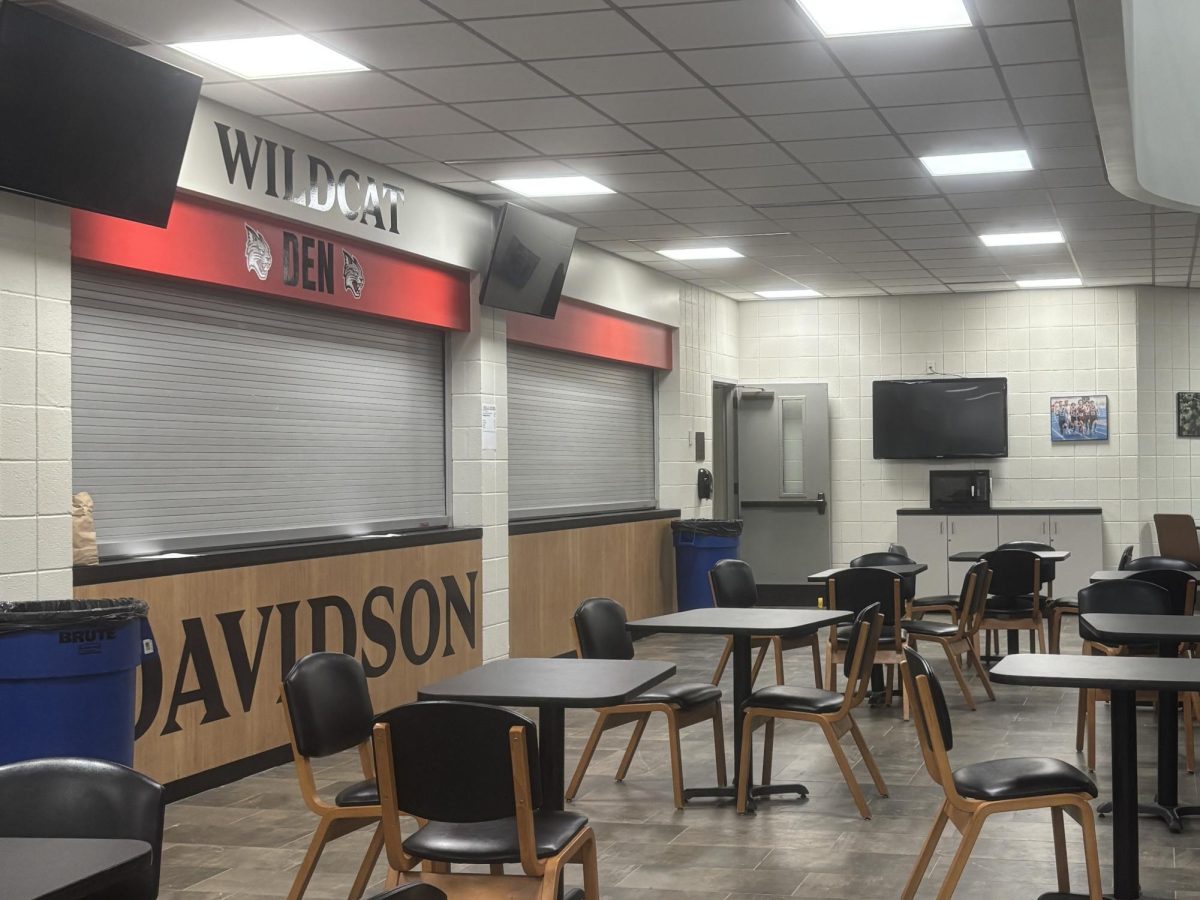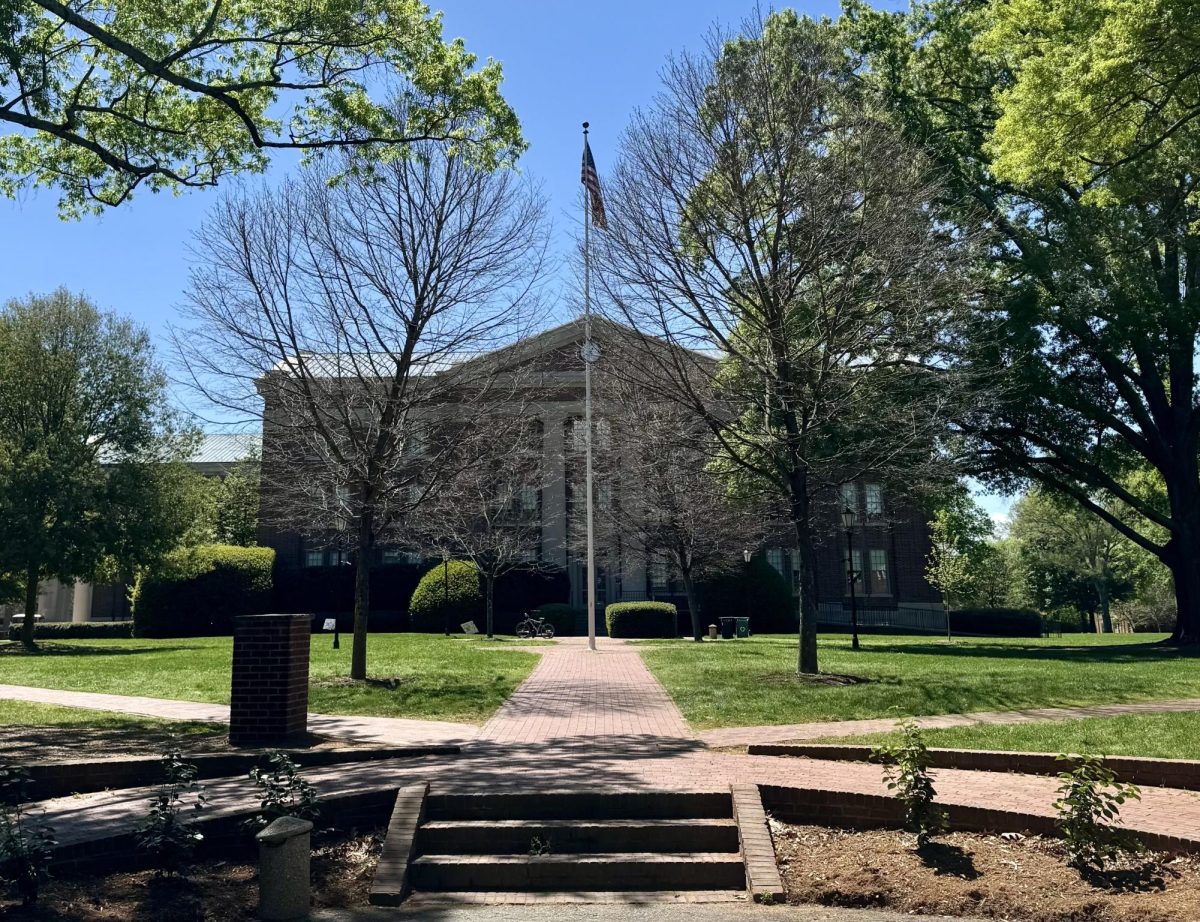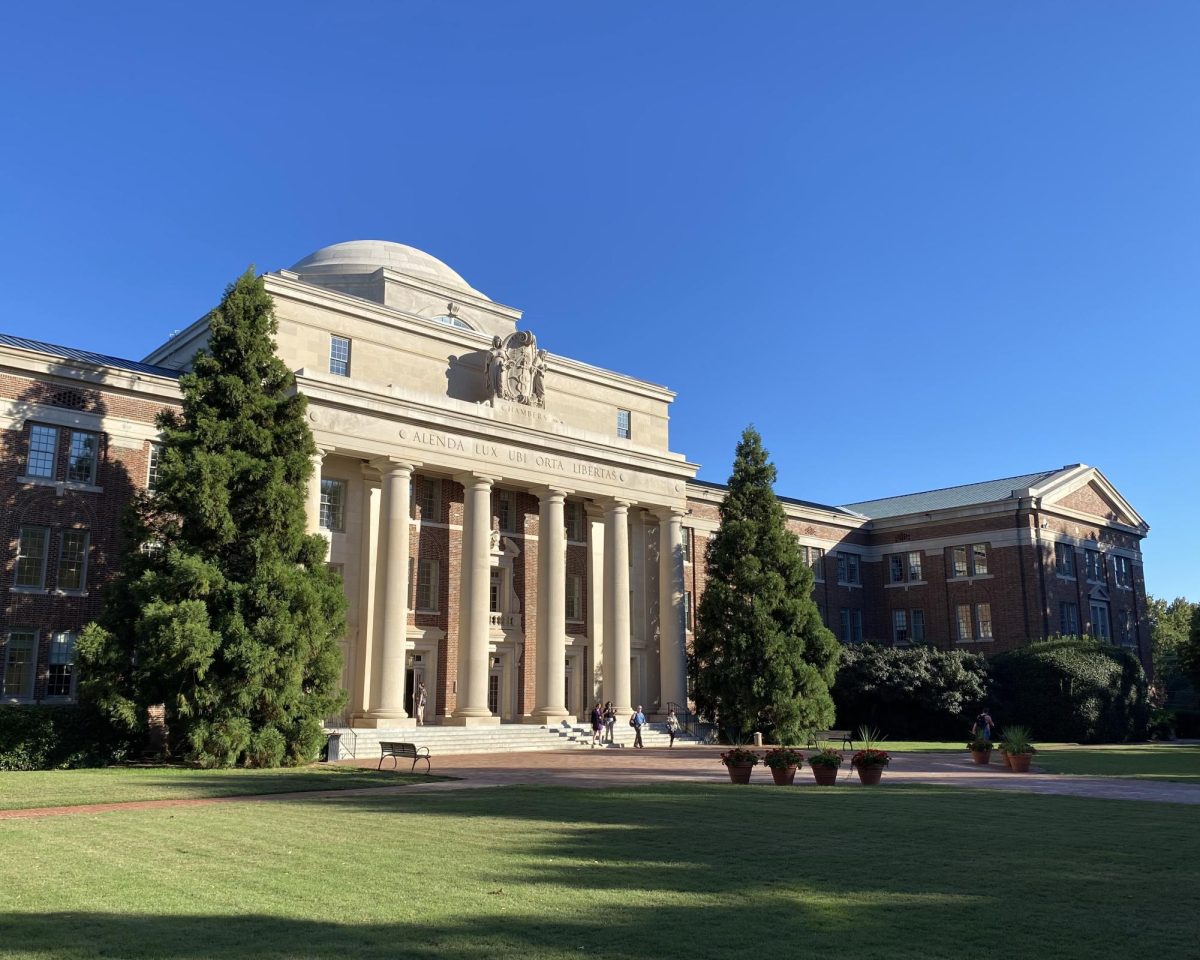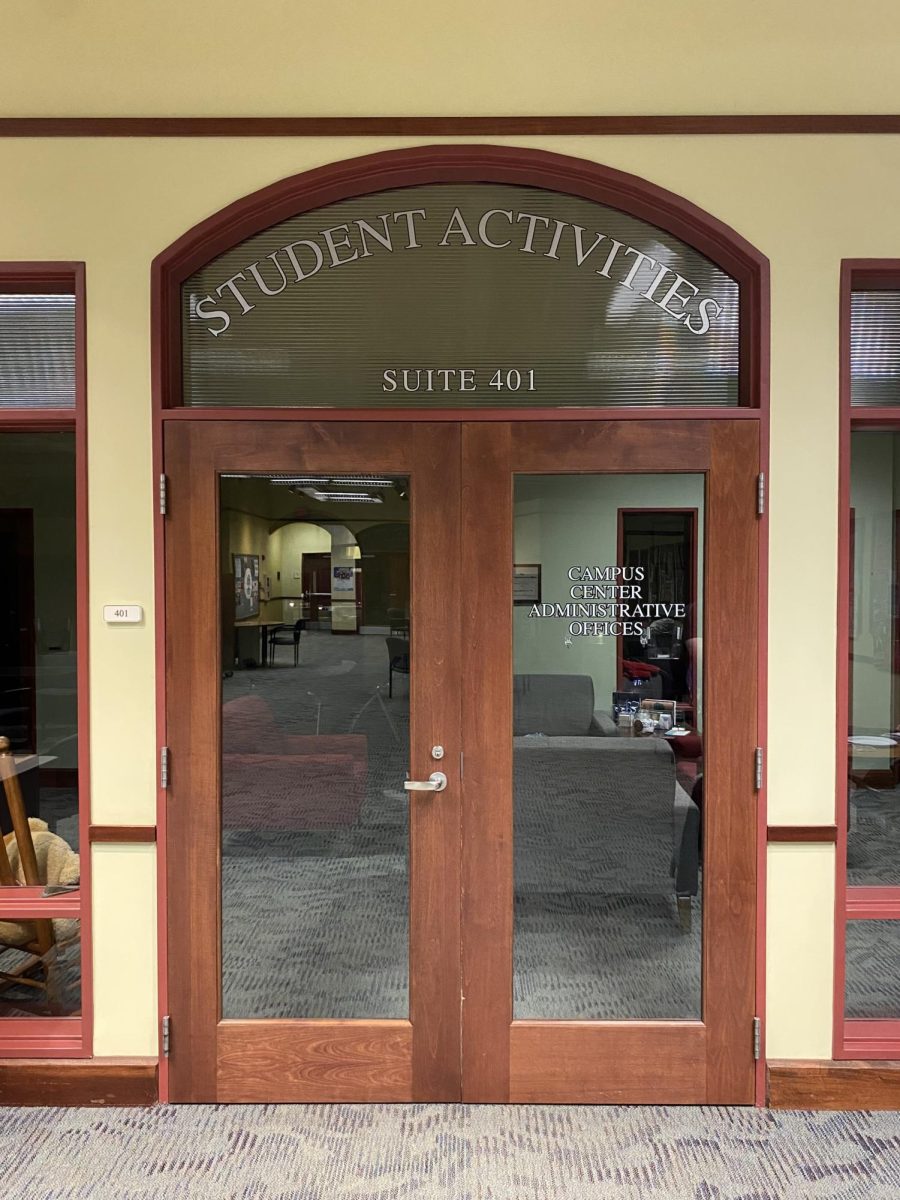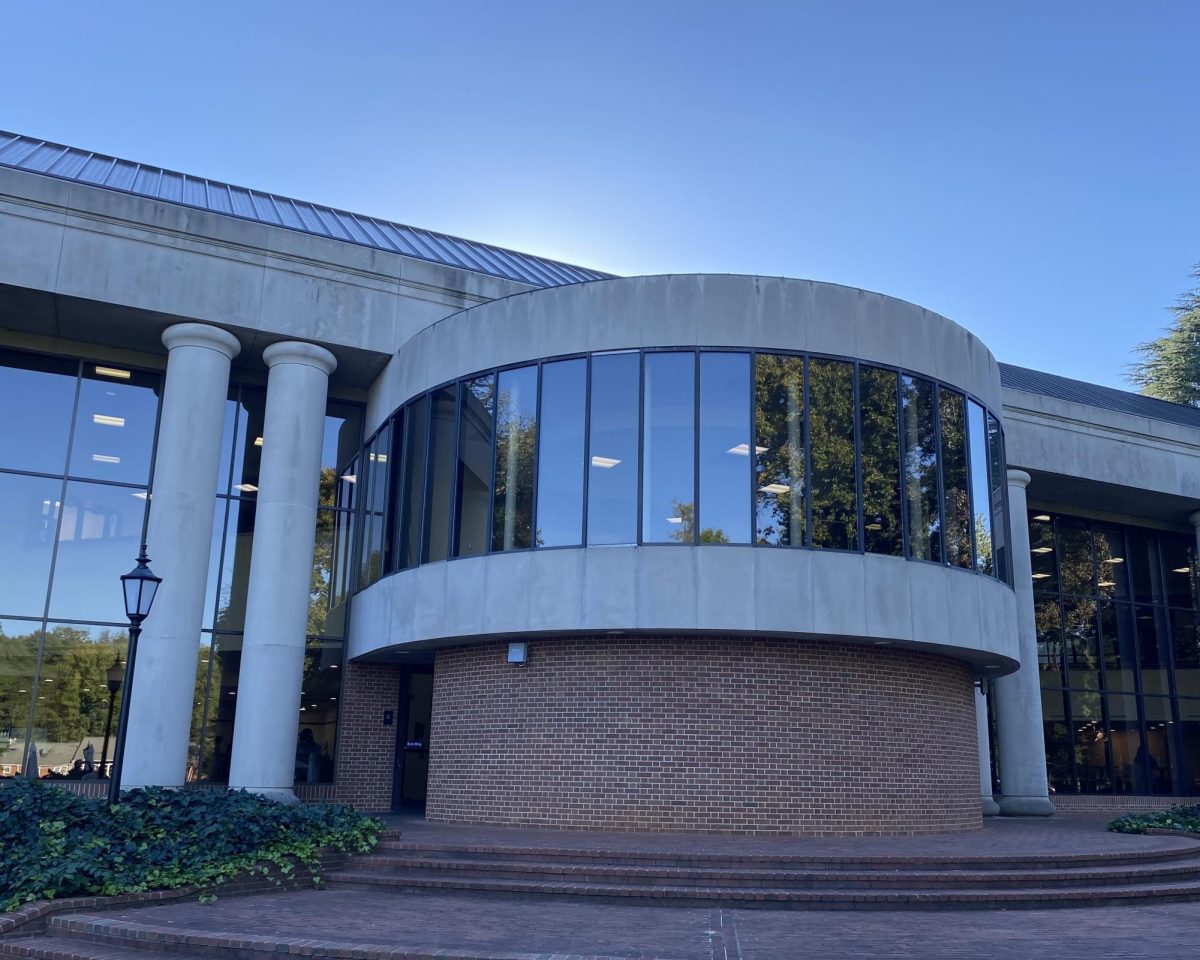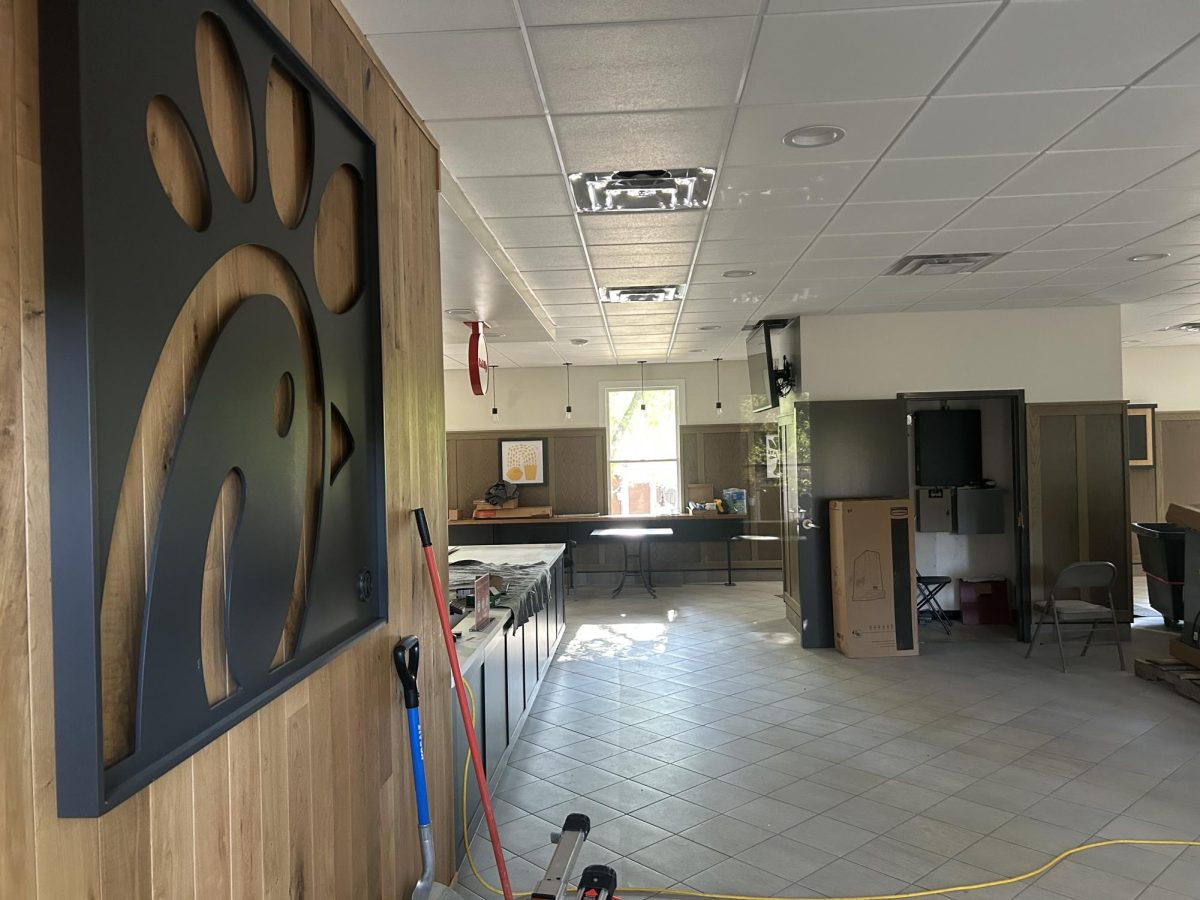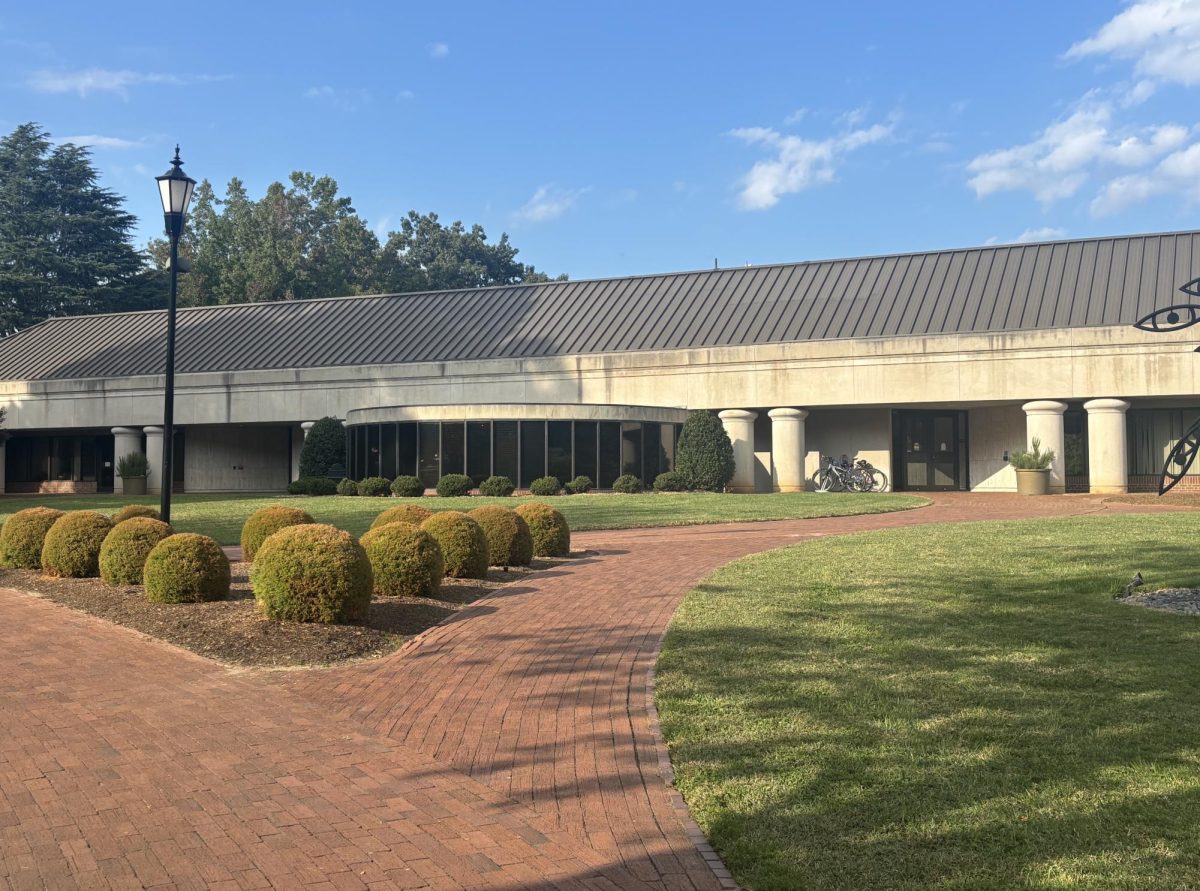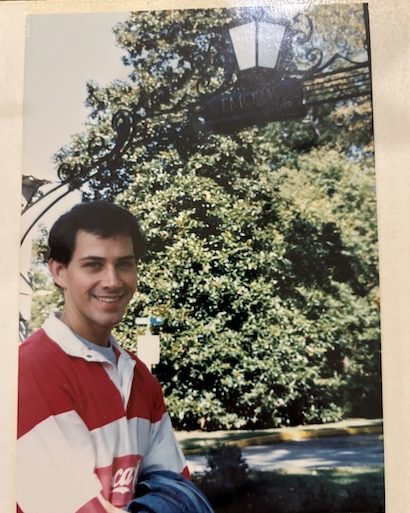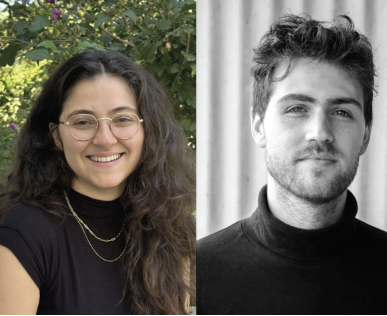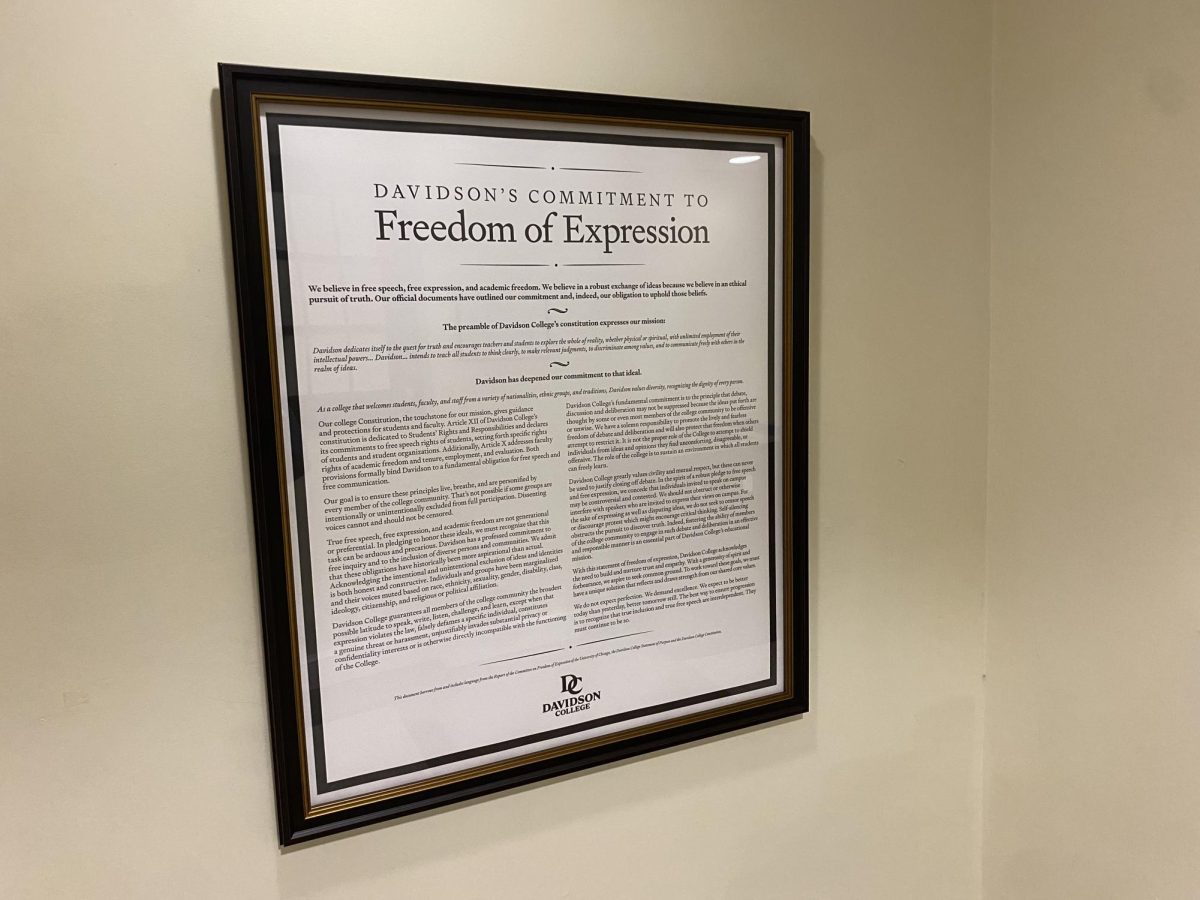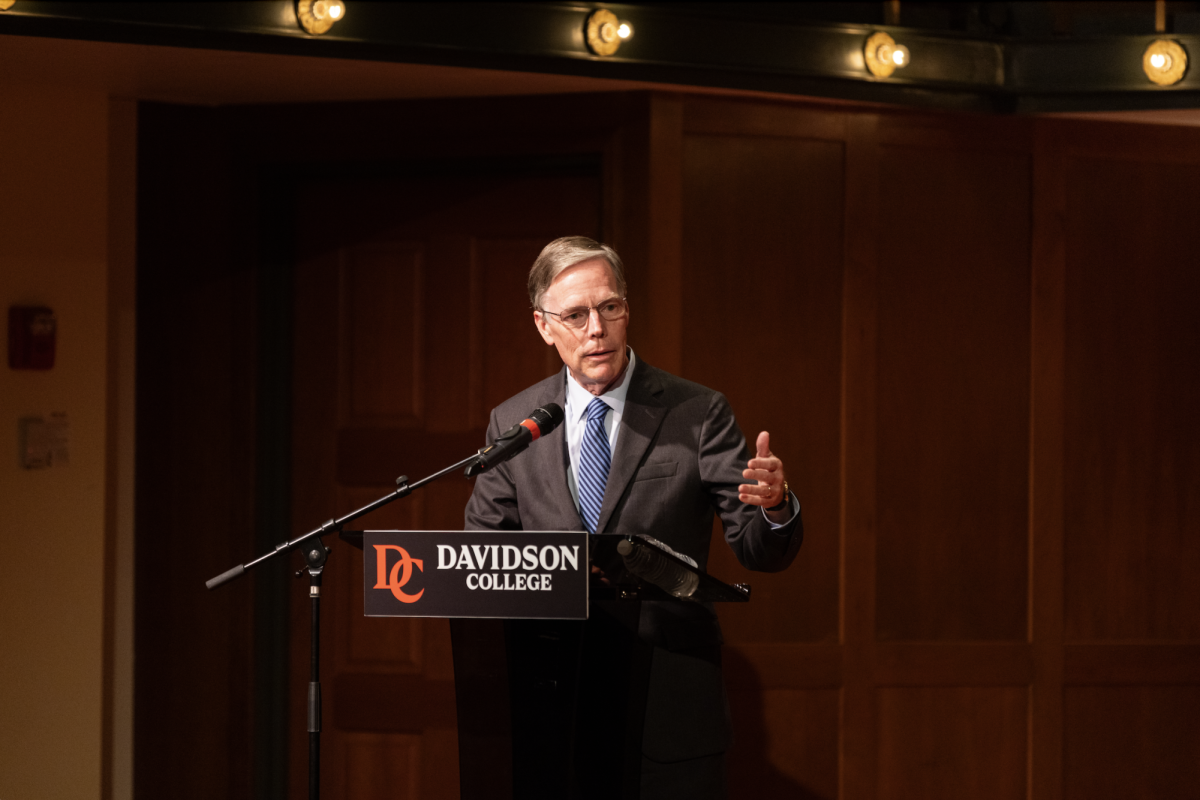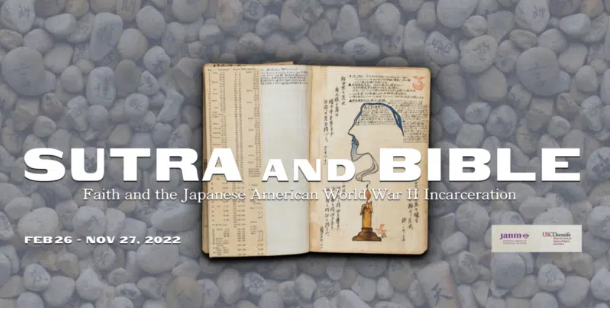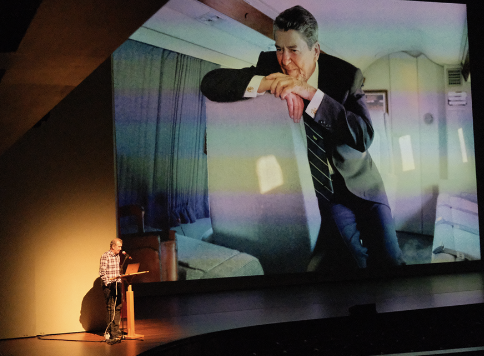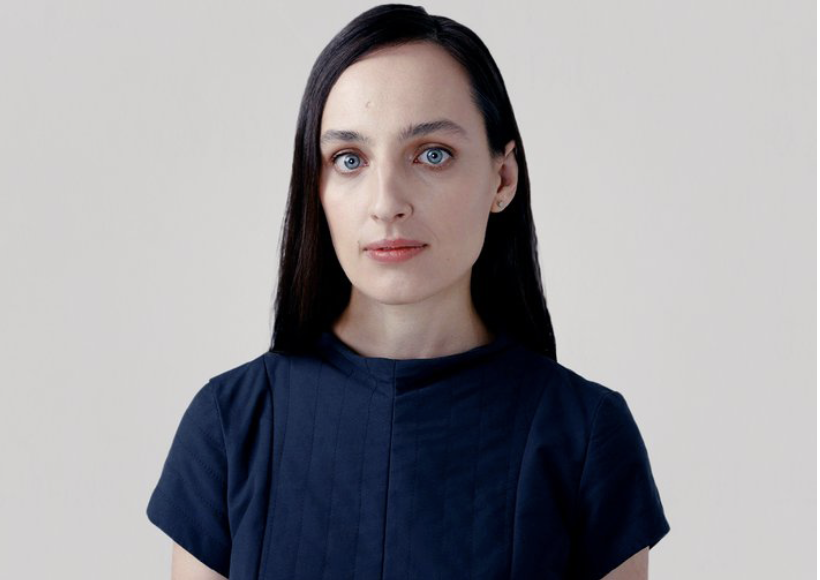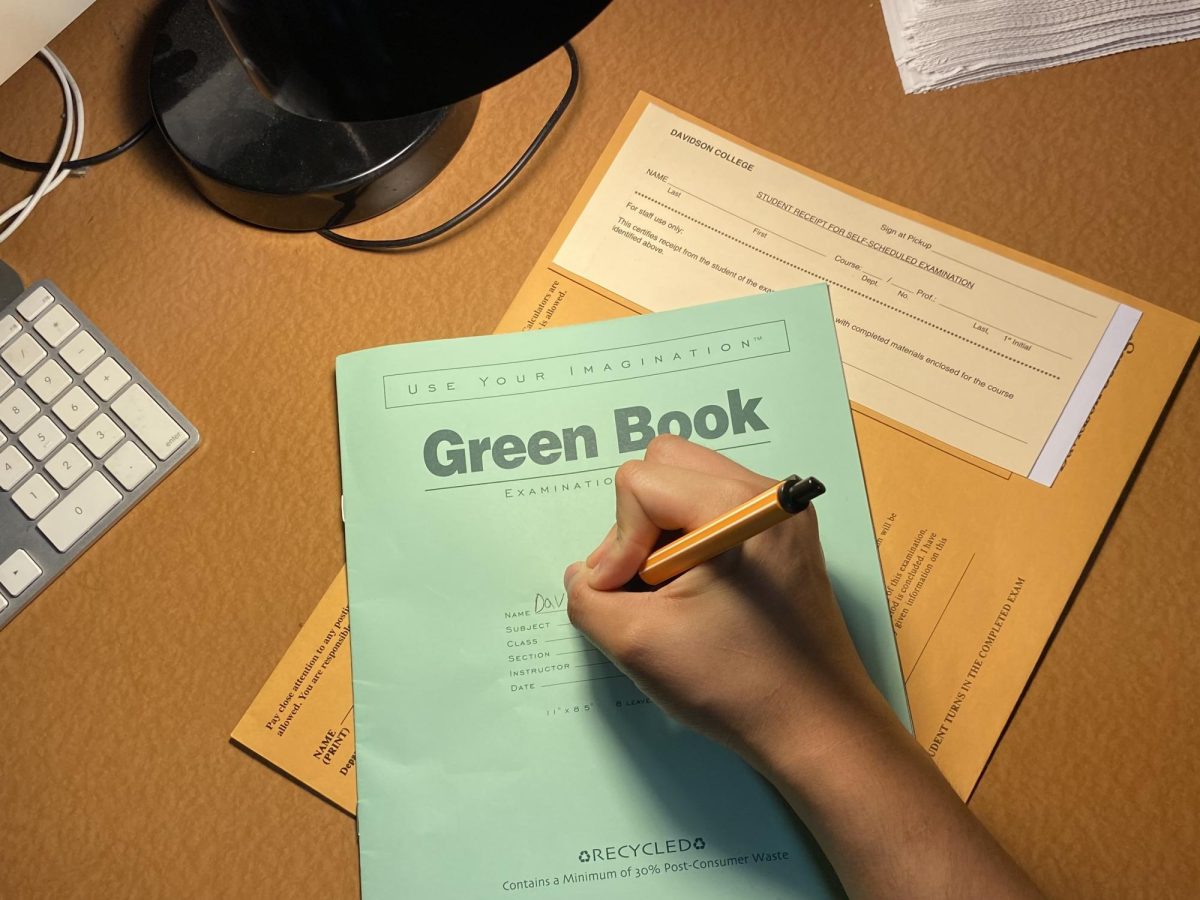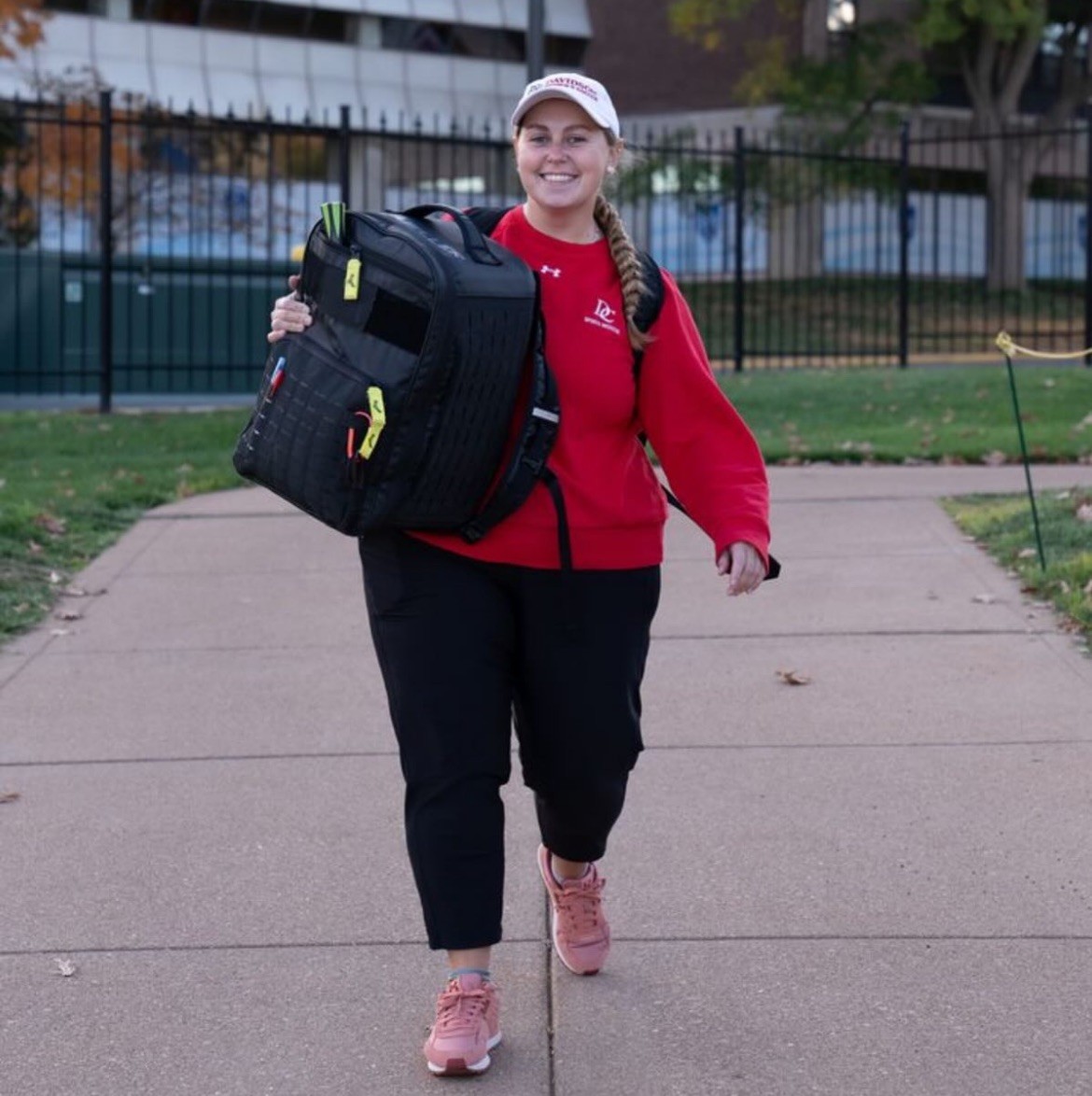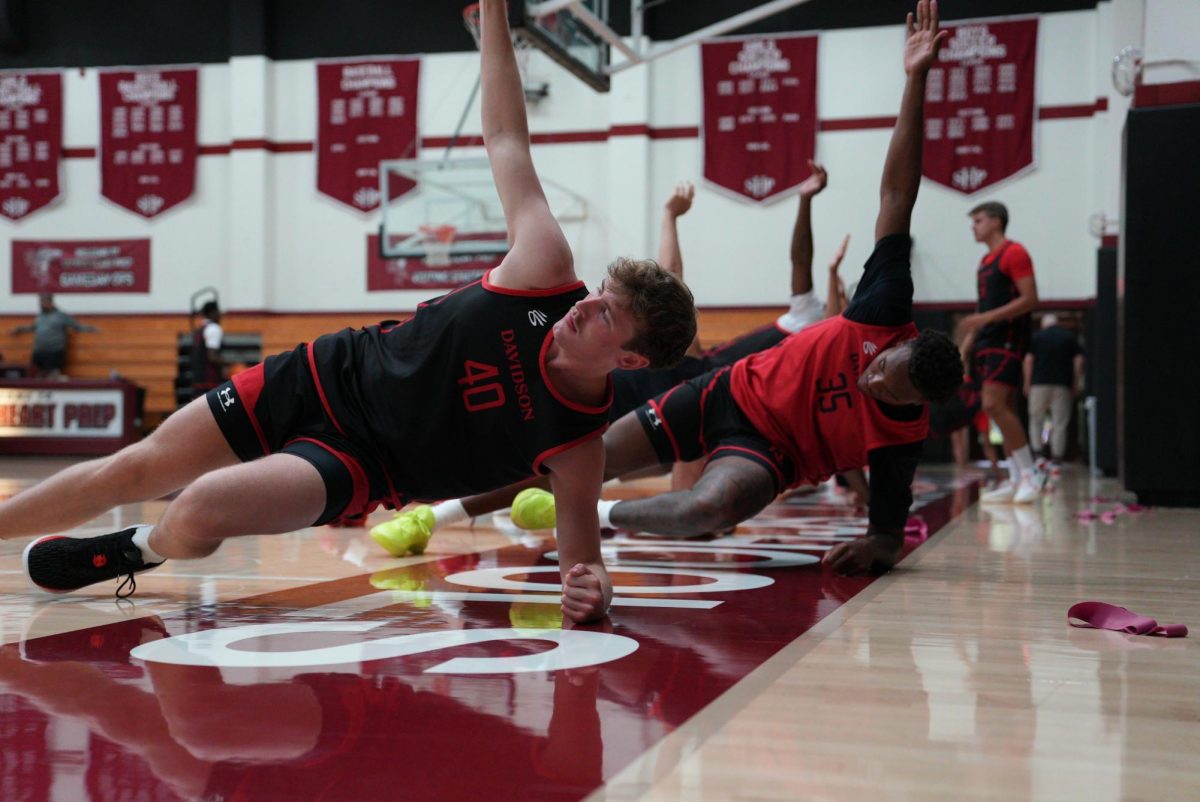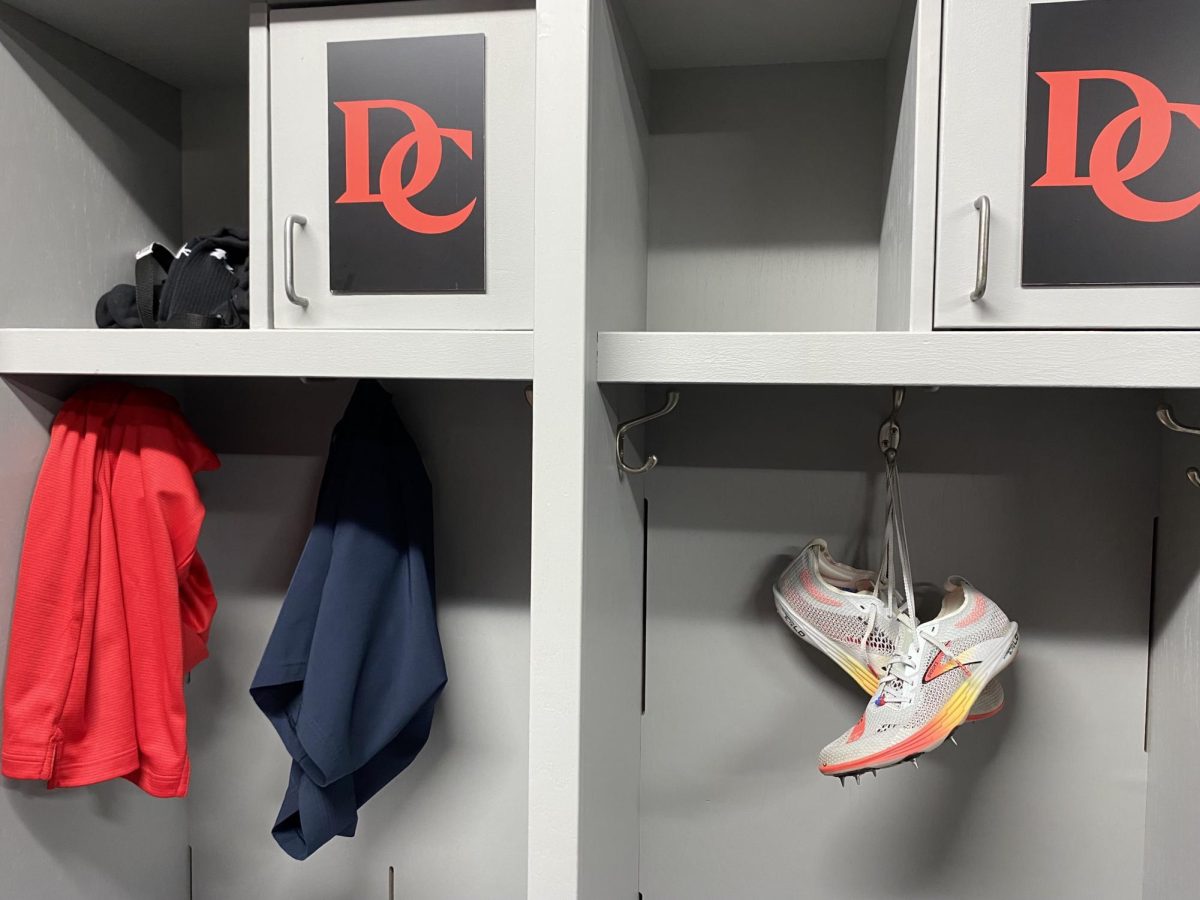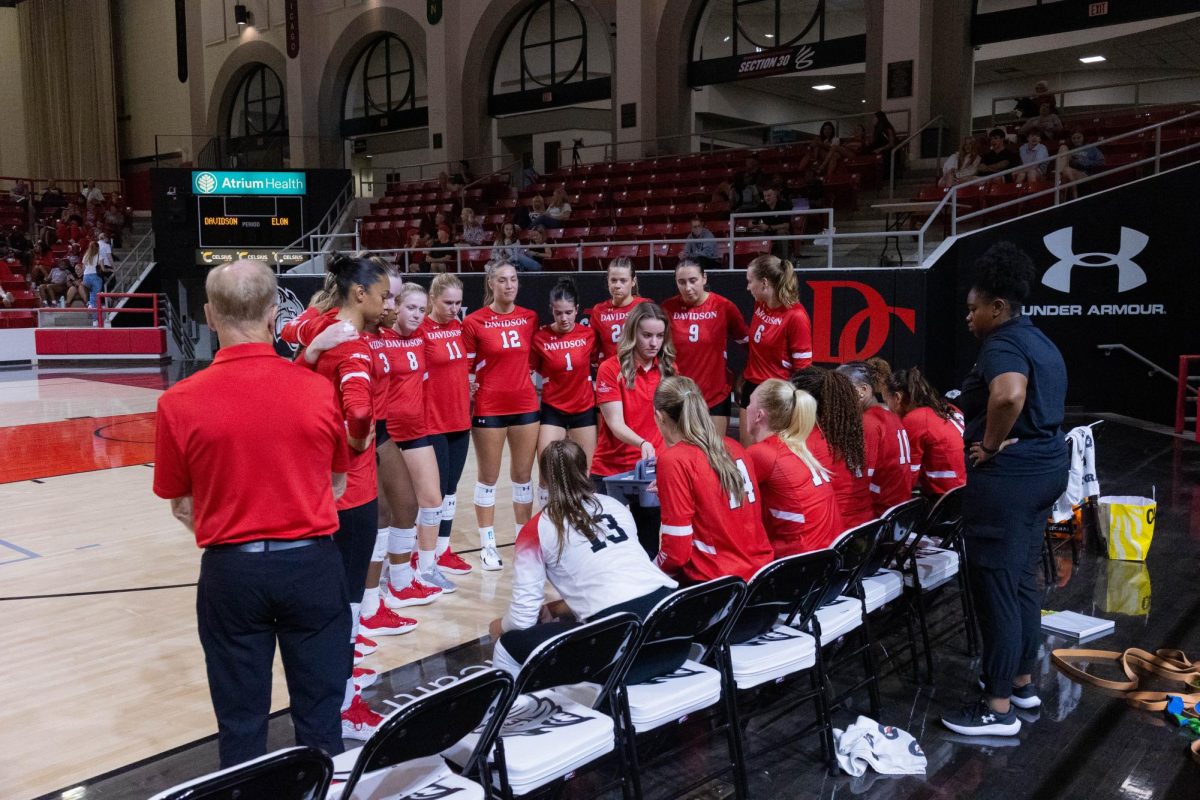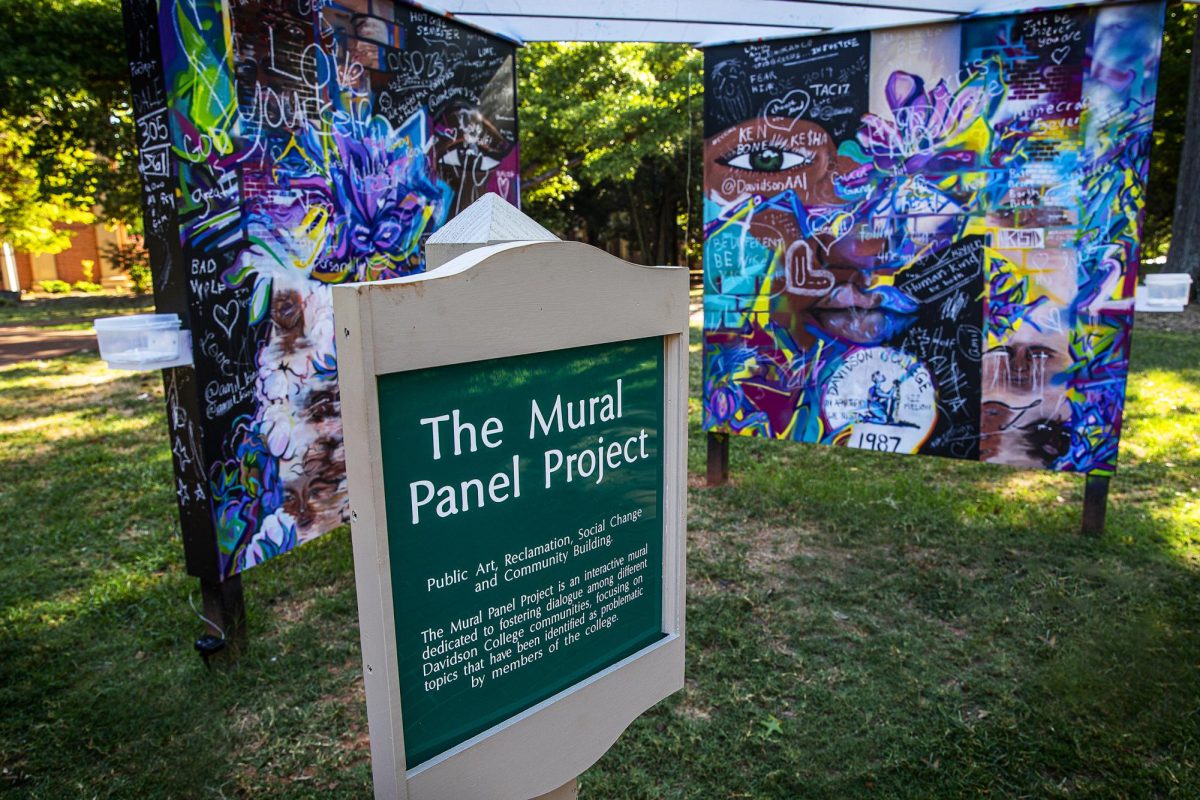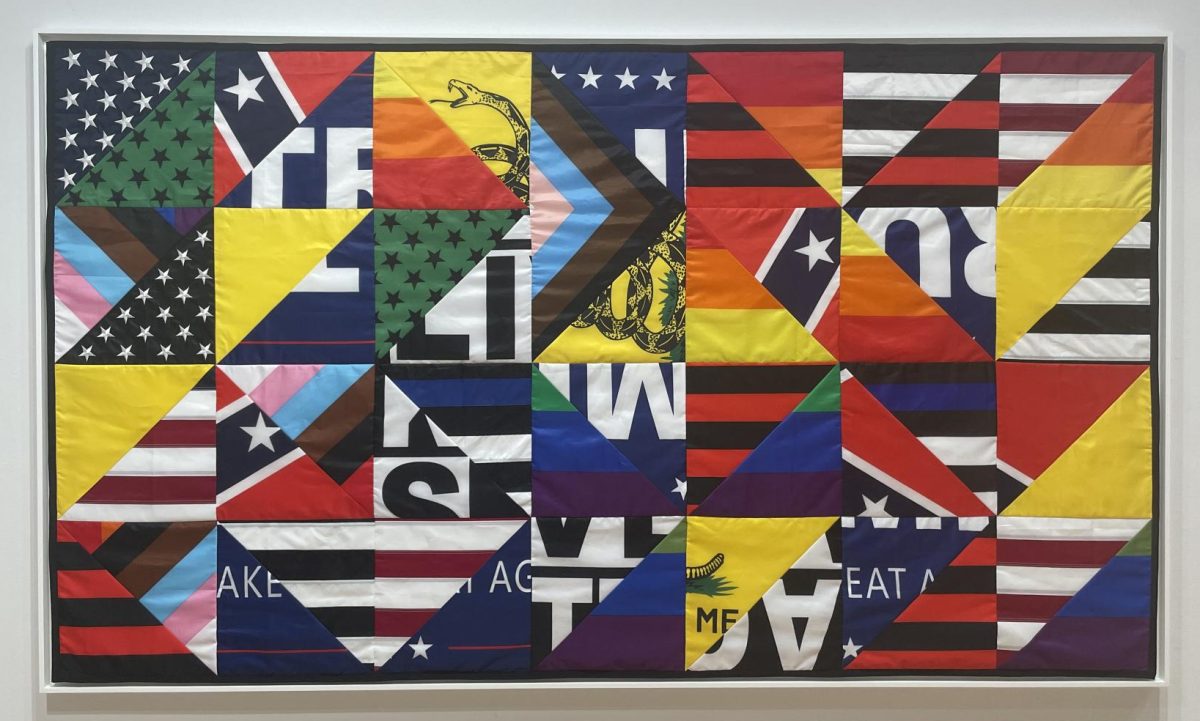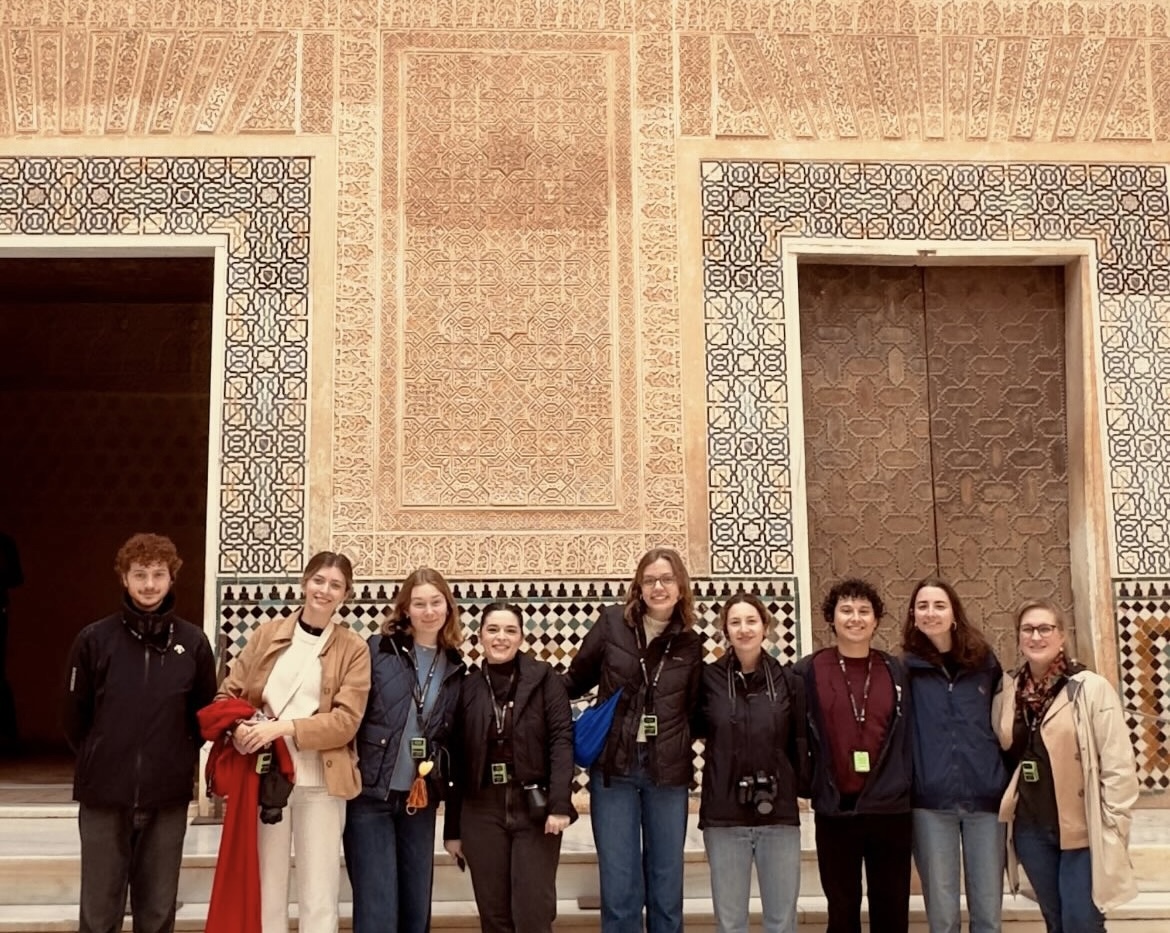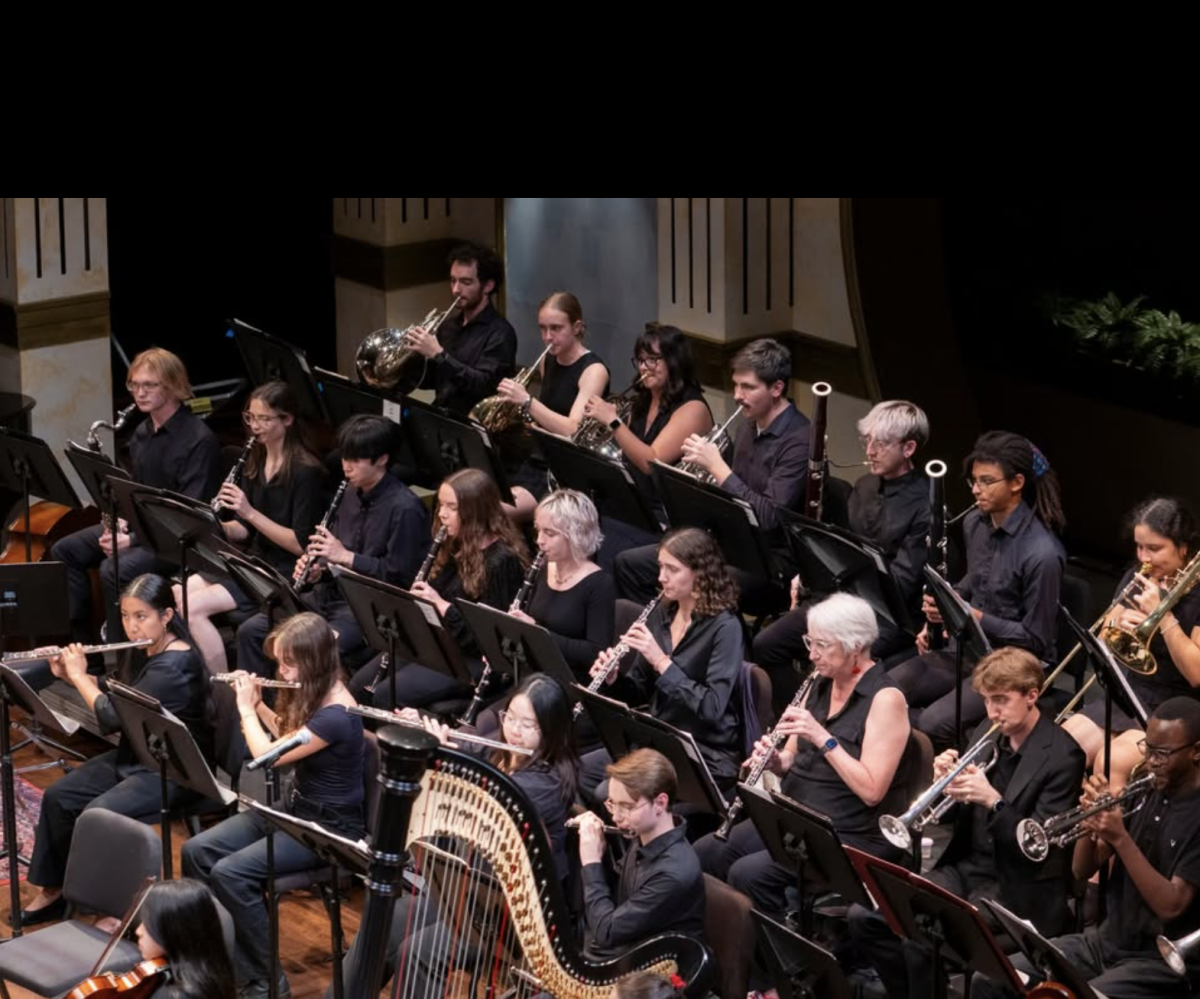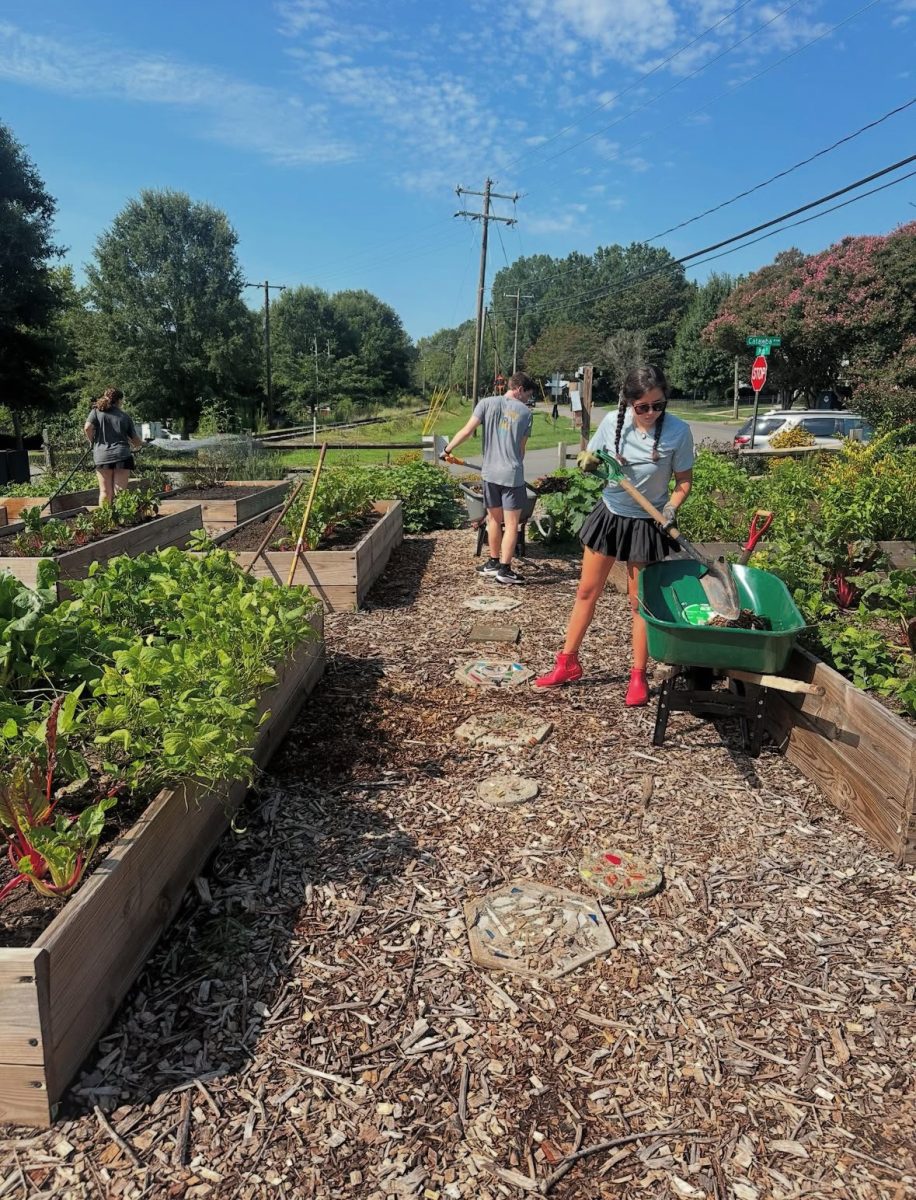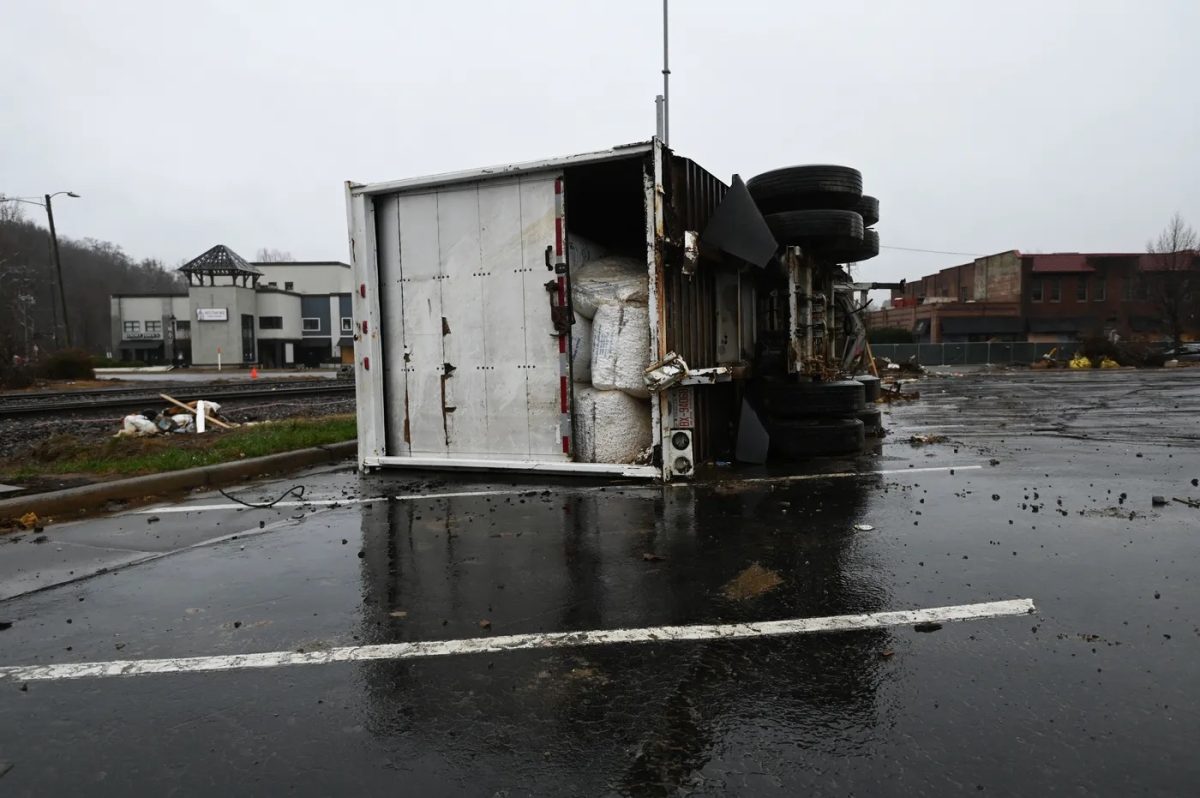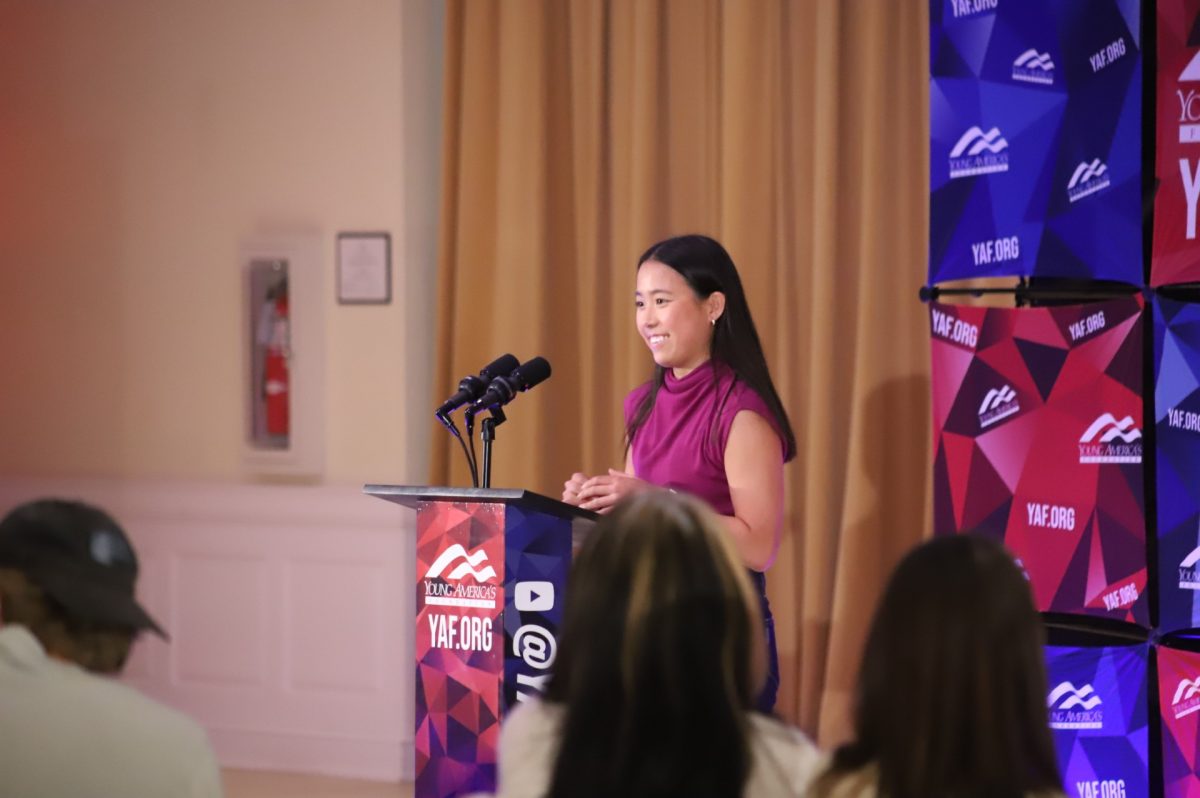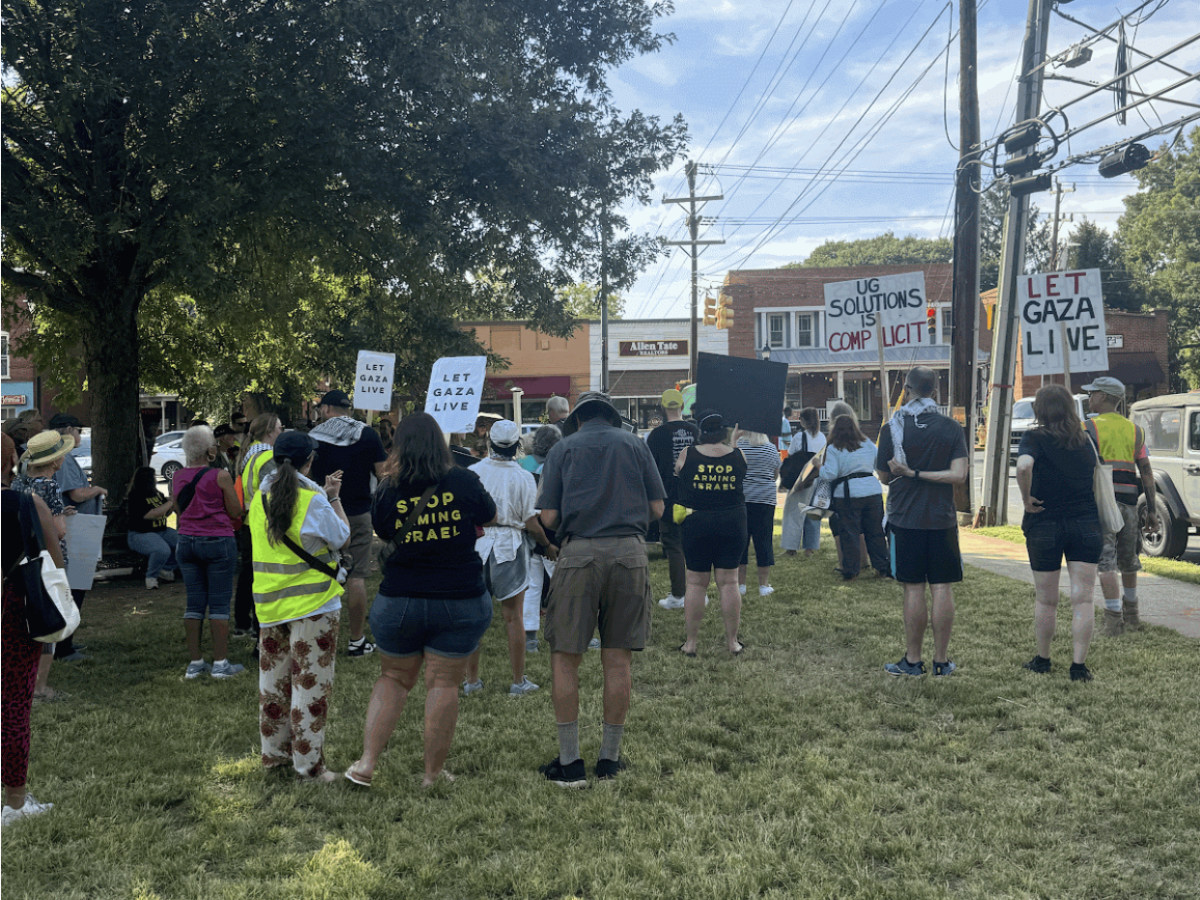Senators Thom Tillis (R-NC) and Amy Klobuchar (D-MN) sat down Monday night with Davidson President Doug Hicks ‘90 in front of a packed house at the Duke Family Performance Hall. The event was the first hosted by the College’s new Institute for Public Good (IPG).
The talk, entitled “Public Good in a Divisive Time,” was the first of many planned collaborations between the President’s Office and the IPG. While hailing from different sides of the country and serving rival political parties, Tillis and Klobuchar were selected to fulfill IPG’s goal of emphasizing bipartisanship.
“Given their party affiliations—one Democrat and one Republican—one might think these two senators rarely agree, but in fact, they work together quite often,” Professor Chris Mariscano ‘10, Chair of Educational Studies and Director of the IPG, said in his opening remarks. “Tonight, we’ll hear from two exceptionally effective bipartisan legislators about how they find common ground, lead with integrity, and advance the public good.”
The Senators channeled this spirit of collegiality to discuss topics like their starts in public service, artificial intelligence, and the current government shutdown. Then, they answered student questions on subjects from political violence to foreign aid.
President Hicks moderated the discussion, coming with prepared questions for the senators. Klobuchar and Tillis’ arrival are a consequence of Hicks’ connections in Washington DC, as well as Tillis’ local ties. Tillis got his political start on the town board in nearby Cornelius. Today, he continues lobbying to reopen Davidson’s disc golf course.
Hicks’ network of contacts on Capitol Hill was a crucial first step for this event. From there, assembling a pair of Senators with records of bipartisanship like those of Tillis and Klobuchar was a logical next step. During their conversation, the duo reflected on the value of such cooperation.
“Courage isn’t standing by yourself, giving some speech and yelling at people,” Klobuchar said. “Courage is whether you’re willing to stand next to someone you don’t always agree with for the betterment of this country.”
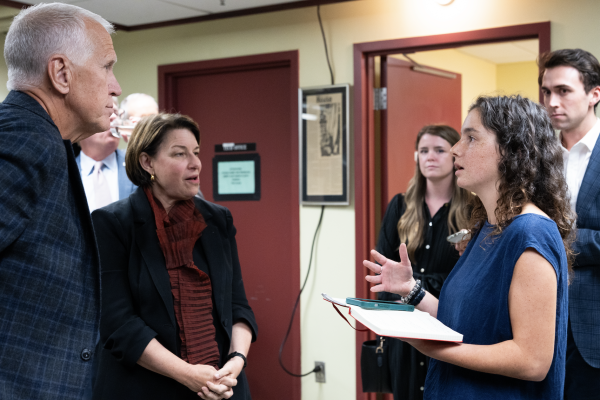
In a follow-up interview with The Davidsonian, the Senators discussed hot button issues like immigration, bipartisan dialogue, and diversity, equity, and inclusion policies.
“Diversity in students is very important, just like diversity in views. So I think this has been a very unfortunate attack going on,” Klobuchar said. “It’s one thing to have disagreements on where some money is going. But it’s another thing to just consistently single out different things. Last time I checked, recruiting a diverse business or student body is a good thing.”
Tillis also offered both criticism of a Trump policy and support from his office. “I disagree with the current posture [on student visas]. I think it’s bad for student populations, but we’re also doing case work. If there are any students concerned they are at risk, they need to contact our office, because we’ll help them,” Tillis said. “If there is anything coming up to fear—and I understand that because of the policies of the president—but if there is a real threat then let us know.”
Reactions to the talk from the campus community were mixed.
“It was a good talk overall. The follow-up is for student organizations and different factions of students here to get together and debate, discuss, and engage in politics,” Professor of History Dan Aldridge said. “I think we should encourage broad political discourse at Davidson College. The sorts of views that exist in the country should exist in the College.”
Although the campus expressed great enthusiasm with having two Senators visit, with tickets selling out in days, some viewers emerged with points of criticism.
“We [Davidson College] are very well behaved and we respect each other’s humanity, which we absolutely have to do, but sometimes the outcome of that is kind of static,” Professor of Religious Studies Greg Snyder said. “I do think it was a good evening but, if it’s only this, I think that’s probably not good.”
The last third of the event was reserved for audience questions. However, some felt the event would be better served by greater student participation.
“President Hicks’ question didn’t really push the envelope,” Declan O’Donoughue ‘26 said. “The energy in the room really changed when students started talking, it became more dynamic.”
Another constituency of students felt betrayed by the Senators’ muted response during a period of upheaval. “The lack of urgency in the Senators’ comments tonight, given masked ICE agents wreaking terror across the country and the National Guard occupying cities, was disillusioning to see,” Saeran Dewar ‘28 said.
Some students intentionally spurned the talk in an effort to send a message about their disapproval of the project.
“I don’t think platforming a person like Thom Tillis is beneficial in the end, because 30 minutes of saying interesting things doesn’t make up for a long history of working to disrupt the public education structure in North Carolina,” said Lennox Goslin ‘28, a North Carolina native.
On the other hand, many viewed the Senators’ approach to these hot button issues as graceful and a good first step. “I felt the loudest emotion in the room was over the steadfast defense of the value of immigrants in our society, and what appeared to me a full throated defense for immigration reform,” local immigration advocate Barbara Randolph said.
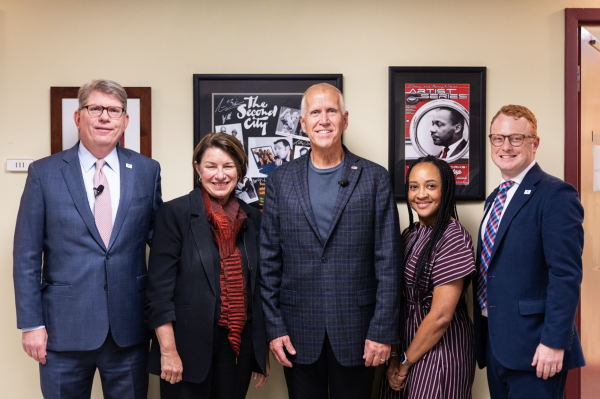
Prior to their public dialogue, Klobuchar and Tillis attended a reception at President Hicks’ home with Davidson alumni, professors, community members, and student political leaders. The Senators conversed with student representatives from student government, the Deliberative Citizenship Initiative (DCI) and campus partisan political organizations. They discussed everything from efforts towards a Senate pickleball caucus to government shutdown solutions.
“I thought it was so cool to put a face and a genuine and fun personality to the names we see on TV all the time. It was a great reminder that all of our politicians at every level are ultimately just like the rest of us,” Student Government Association Vice President Harry Carter ‘28 said. “I also thought it was super interesting to see how charismatic they were and how friendly they were to each other and all of us.”
After the conversation, the DCI, the tentpole of the IPG’s Deliberation & Free Expression arm, hosted a follow-up deliberation just outside in Union Room 205, inviting attendees to further wrestle with the questions of moving towards the public good in a moment of polarization.
“When I got out of the lecture, I was actually kind of afraid at first to go in. As an international student, do I really want to have these political discussions with all these people around? But I went in and enjoyed the conversation,” Chidindu Ohaegbulam ‘28 said.
“Most Davidson students are pretty open minded, but it’s nice to see different perspectives on the political spectrum have good, meaningful conversations. I came away from that whole discussion with more understanding of what different perspectives look like.”
With Klobuchar and Tillis’ arrival, the IPG sought to mark its presence as a core institution of the campus political scene. Reflecting on the institute’s namesake, Klobuchar, Marsicano and Tillis offered different definitions of a public good.
“The public good is something that improves people’s lives,” Klobuchar said.
Within the context of the IPG, Marsicano defined public good as public benefits that society receives from higher education institutions. He added, “[IPG] argues that there’s a civic purpose of higher education as well, colleges and universities must be engaged in civil discourse.”
Tillis contributed a more pragmatic definition. “To me the public good […] it’s really the head and the heart meeting and producing a good result for some country […] but also a good result for the American people.”
For any of these definitions of the public good, Marsicano and the IPG approach free speech and cooperation across political divides as paramount.
“It is incredibly important that higher education institutions defend free speech in all of its forms,” Marsicano said. “The [IPG] in particular wants to continue to bring people from disparate political views together. That’s why we are supporting this event.”
However, some students demand more from the IPG in directly addressing hot button issues that people care deeply about.
“I was disappointed that the discussion between the Senators wasn’t substantive,” Sofia Cimballa ‘26 said.
“The fact that Doug Hicks did not ask any questions about the climate, Gaza, immigration, abortion or LGBTQIA issues indicates the Institute for Public Good is out of touch with our unique political moment of crisis.”

